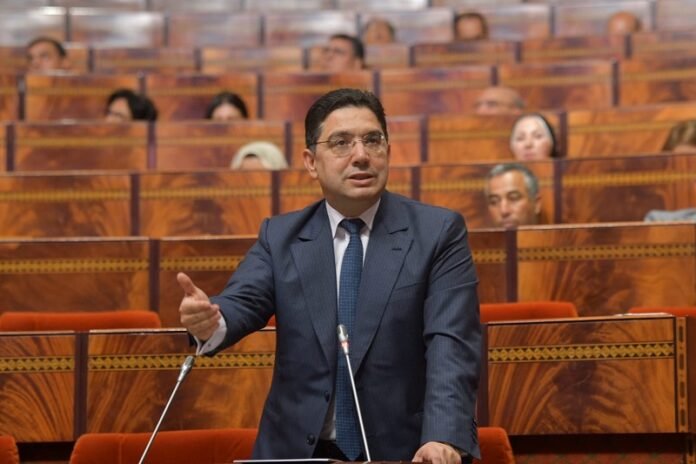At a time when geopolitical challenges intersect with global economic transformations, and where sovereignty and development stakes are becoming increasingly crucial, Morocco is emerging as a country consciously and gradually seeking to reposition itself on the international relations map. It is doing so by investing in new diplomatic tools, most notably economic diplomacy and the strengthening of the Moroccan diaspora’s role as a strategic lever.
Foreign Minister Nasser Bourita, in his latest address to the House of Representatives, did not merely list achievements. Instead, he outlined a broader vision: transforming Moroccan foreign policy from mere traditional representation into an economic and commercial platform serving national development and decision-making sovereignty.
But what does “economic diplomacy” truly mean in the Moroccan context? Are we witnessing a fundamental shift in the Kingdom’s diplomatic doctrine, or merely an expansion of influence without deep restructuring?
From Diplomatic Representation to Economic Mediation
Bourita’s announcement of the creation of a General Directorate for Economic Diplomacy and the appointment of economic attachés in several embassies reflects a growing belief within the official apparatus that international relations are no longer governed solely by statements and positions, but by interests, deals, and the state’s ability to defend its products, attract investments, and structure win-win partnerships.
This orientation aligns with a royal vision proclaimed years ago, especially through multiple visits to Africa and the signing of numerous South-South agreements. But one critical question arises: Do we have the institutional frameworks, qualified human resources, and coordination mechanisms between sovereign ministries and the business sector to translate this vision into concrete action?
The Moroccan Diaspora: From “Financial Transfers” to a “Strategic Soft Power”
The minister’s remarks about Moroccans abroad, whose annual remittances exceed 100 billion dirhams, reveal a striking paradox: this community is a major financial pillar, yet remains marginalized in public policies related to investment and economic decision-making.
Only 10% of these remittances go into investment projects! This leads to a pressing question: What prevents these skills and funds from becoming true partners in the national economy? Is it bureaucracy? Lack of trust? Poor support systems? Or a lack of serious political will to redefine the relationship with this group institutionally?
The Mohammedian Foundation for Moroccans of the World: Beginning of Change or a New Facade?
The announcement of the Mohammedian Foundation for Moroccans of the World is part of an attempt to frame a new model for diaspora engagement. However, the success of this endeavor depends on several conditions:
-
Clearly defining its functions and boundaries with other institutions,
-
Involving the diaspora in designing and managing the body,
-
Providing it with a legal framework that ensures continuity and good governance.
Today’s challenge is not just creating new institutions, but restoring lost trust between Moroccans abroad and national institutions through transparency, legal protection, and procedural efficiency.
Morocco’s Quiet Victories: A Royal Vision Facing the Challenges
Away from media noise, Morocco can claim some quiet strategic wins:
-
Institutional stability amid a turbulent regional context,
-
Diversifying economic partnerships beyond the traditional European sphere,
-
Developing a diplomatic network with a developmental and commercial focus.
Yet these successes remain at risk if not supported by internal reforms of institutions concerned with migration and investment, and if the Moroccan diaspora is not fully utilized as a force for ideas and action, rather than merely a “wallet.”
Conclusion:
Building a strong economic diplomacy and enhancing the role of the Moroccan diaspora in national issues is not a political luxury—it is a strategic necessity for a country that aspires to be an influential actor in African and international affairs.




